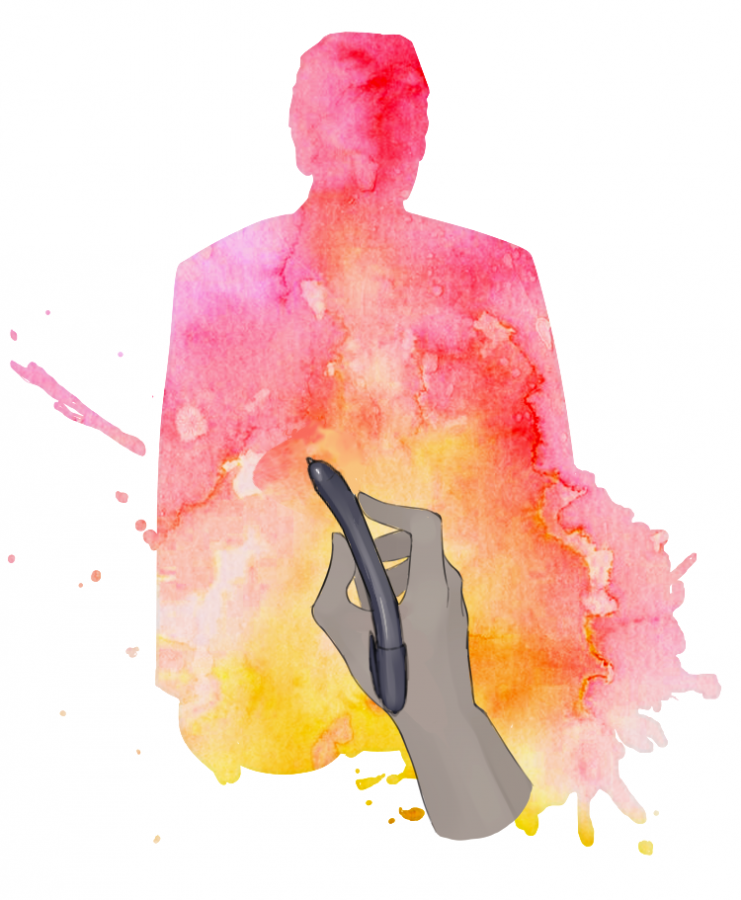Behind every vote, there’s a story.
My story is filled with experiences, relationships, childhood memories, passions, mistakes and successes that shape who I am today — just like anybody else. But there’s two sides to every story: the intangible parts of our identity that define us and the physical exterior that everyone sees.
This election, our country has been torn and divided and wounded millions of people in the process of electing a man who ran on a platform of ignorance and bigotry. Because we refused to work together and because of our unwillingness to hear both sides of each story, hatred won.
Throughout most of our country’s history, people were defined mostly by what the public saw of them. Our laws and institutions were built for those who have power, money and resources — oftentimes white men — and the same freedoms for women, people of color, the LGBTQ+ community and anyone outside that demographic were ones we had to fight for.
Despite the very words “all men are created equal” written in the Constitution, the country was anything but equal. The residual effects of these inequalities still remain to this day and bleed into every one of our stories.
As an Asian-American woman who comes from a family of eight, I didn’t realize how much my physical identity mattered until I went to a predominantly white, upper-middle class high school. Despite having a strong religious and conservative upbringing from my parents, I was constantly in conflict with the values I was raised with and the experiences I had outside of the home.
I didn’t understand why I was a minority in a school of about 600 students. I didn’t understand why people asked me “What are you?” in a subtle point to make me feel different.
I didn’t understand why people didn’t take me seriously at work or in class, since I was just a soft-spoken girl who kept to the sidelines. I didn’t understand why I had to wear brand clothes, straighten my hair and wear makeup just to feel pretty, but I did it anyway.
It was disappointing to live by these assumptions when my peers and teachers told me stereotypes and prejudices didn’t exist anymore. The lessons we learn of America being a melting pot that embraces diversity didn’t always translate to reality.
And yet, there was something even more frustrating that permeated every aspect of my life: financial insecurity. I did not realize how my family’s financial struggles hindered my opportunities in life until I saw other students from wealthier backgrounds with much more. No one could see it, but the simple privileges my peers took for granted were the same luxuries I yearned for everyday.
Living in Montgomery County, the second wealthiest county in Pennsylvania, I was surrounded by students who had everything. I envied those who had large, white picket-fenced homes with their own bedrooms while I shared with my siblings, or those who went on vacations abroad while I stayed at home. I was jealous of those who had their parents making sure they were prepared for college with SAT prep classes and private tutors while my parents were working. And I couldn’t help wondering if I was inferior or less than for not having those things.
Even though I grew up learning that with hard work and resilience, anyone can succeed — the foundation of the American dream — it seemed like money was really the determining factor of success. I was too embarrassed to admit these feelings, because it would mean re-evaluating all lessons of individualism and Christian principles I had ingrained in me.
My identity of being a woman, an Asian-American and a daughter of an immigrant are just as important to me as my working-class roots are. The only difference is one side is based on my appearance, and the other is based on factors that are unseen. Too many people judge others on the former and fail to look further into the latter.
It took me years of challenging my own beliefs and understandings of the world to realize who I was meant to be. But it shouldn’t take personal experience with discrimination and economic anxiety to know it exists. When our brothers and sisters are expressing their hunger for change, we shouldn’t pass it off as a joke.
When Donald Trump was declared the president-elect of the United States, I mourned for all of our people. In such a divisive time, I grieved for every woman who has to look at someone accused of sexual assault, who uses women for his own consumption, as their next leader. I wept for every African-American who will now be subjected to the same racist slurs that Trump echoed during his campaign. I was appalled at the the thought of Muslims being harassed and facing taunts for their religion. And I felt saddened by the fact that Mexicans will be vilified and blamed for our country’s problems.
But I’m also deeply concerned about the future of working-class Americans and those living in poverty. Millions of disenfranchised Americans were left behind in our changing economy, and nobody listened to them. Financial insecurity is like an invisible anchor that weighs you down, except it goes deep into your well-being, your confidence and your quality of life.
Moving forward, we have to understand that economic justice and social justice are equally important and intertwined. We have to listen to both sides of every story. And we should always challenge the assumptions we have of one another. We need empathy, compassion and courage to stand up for one another.
With every step of progress, there’s going to be opposition. Instead of fighting among each other, let’s fight inequality together. It’s time to overcome hatred and fight back with unity.
Kirsten is the Opinions Editor at The Pitt News. She primarily writes on social justice issues and public policy for The Pitt News. Write to her at [email protected].


